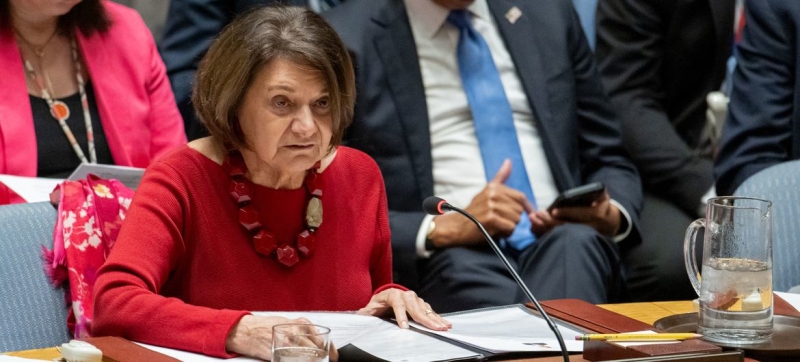
UN Deputy Secretary-General Rosemary DiCarlo. UN Security Council: The world needs a new generation of women leaders Women
Speaking at the UN Security Council on Tuesday, Deputy Secretary-General Rosemary DiCarlo stressed the important role of new generations of leaders, especially girls and women, in efforts to advance peace and protect human rights. The session on “Women, Peace and Security” was hosted by the United States, which holds the presidency of the Security Council in December.
“Our world is in danger,” DiCarlo said, stressing that violence is rising and threats are becoming more sophisticated, from climate crises to hybrid wars. The Deputy Secretary-General noted that geopolitical differences are intensifying and the space for constructive dialogue is shrinking. However, according to her, “young women peacebuilders are demonstrating that a better world is possible.”
Leaders of Change
DiCarlo drew attention to young leaders who have already made a significant contribution to peace and human rights. In this context, she noted Nobel laureate Malala Yousafzai, who defends the right of girls to education in Pakistan; Greta Thunberg, who mobilized millions of people to fight climate change; and Ilwadu Elman from Somalia, who helps rehabilitate child soldiers and prevent violent extremism. “These extraordinary leaders remind us that change can only be achieved by challenging the status quo,” she said.
Overcoming Patriarchal Norms
Referring to the Secretary-General’s report, A New Agenda for Peace, DiCarlo stressed the need to change entrenched patriarchal attitudes. “Unless we break free from patriarchal norms, true peace and inclusive security will remain elusive,” she warned.
DiCarlo also pointed to the importance of the Pact for the Future, which emphasizes the need to involve women, including in leadership roles, in conflict prevention efforts.
A Call to Action
In her presentation, DiCarlo focused on three key areas: dialogue, inclusive peace processes, and investing in measures that would nurture a new generation of women leaders. She cited examples of successful initiatives that demonstrate the potential of intergenerational cooperation. In Chad, for example, the Peacebuilding Fund supported dialogue platforms where youth and elders developed an “intergenerational charter” to resolve intercommunal conflicts. In The Gambia, mentoring programs connected female politicians with young women aspiring to leadership.
However, DiCarlo emphasized that peace cannot be achieved through elite efforts alone. “Promoting inclusive, multi-level peace processes that prioritize diverse groups of women, including young women, is critical to building local infrastructures of peace,” – she said.
Investment is a Necessity, Not a Choice
The need for sustainable funding was a key theme in her speech. DiCarlo cited examples of the Peacebuilding Fund’s initiatives in Somalia and El Salvador, where youth-led efforts have helped reduce violence and resolve conflicts. “Significant and sustainable resources are needed to support young women peacebuilders and ensure the success of their work,” she stressed.
Recalling the approaching 25th anniversary of the adoption of Security Council Resolution 1325, which linked peace and women’s rights, DiCarlo concluded her speech with an appeal: “We must open the doors for the next generation [of leaders]. Together, we must develop leadership from the bottom up, placing the rights of women and young women at the centre of our efforts.”
